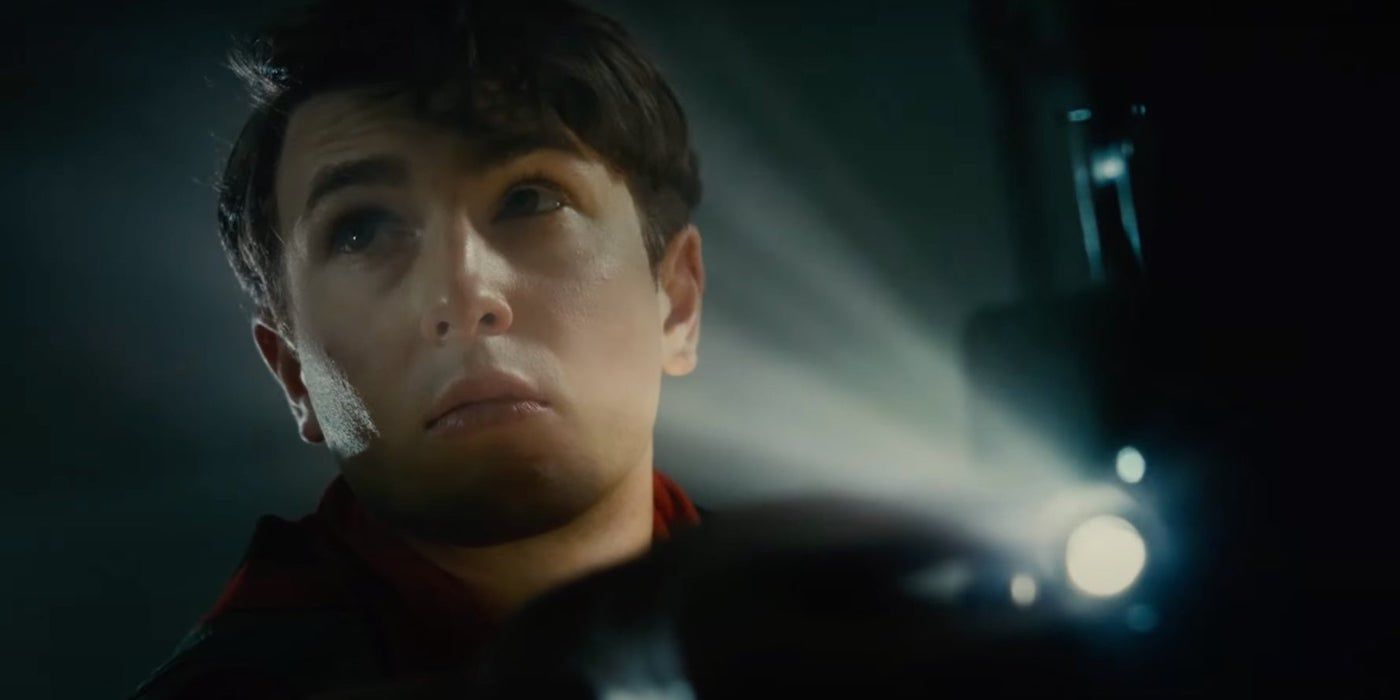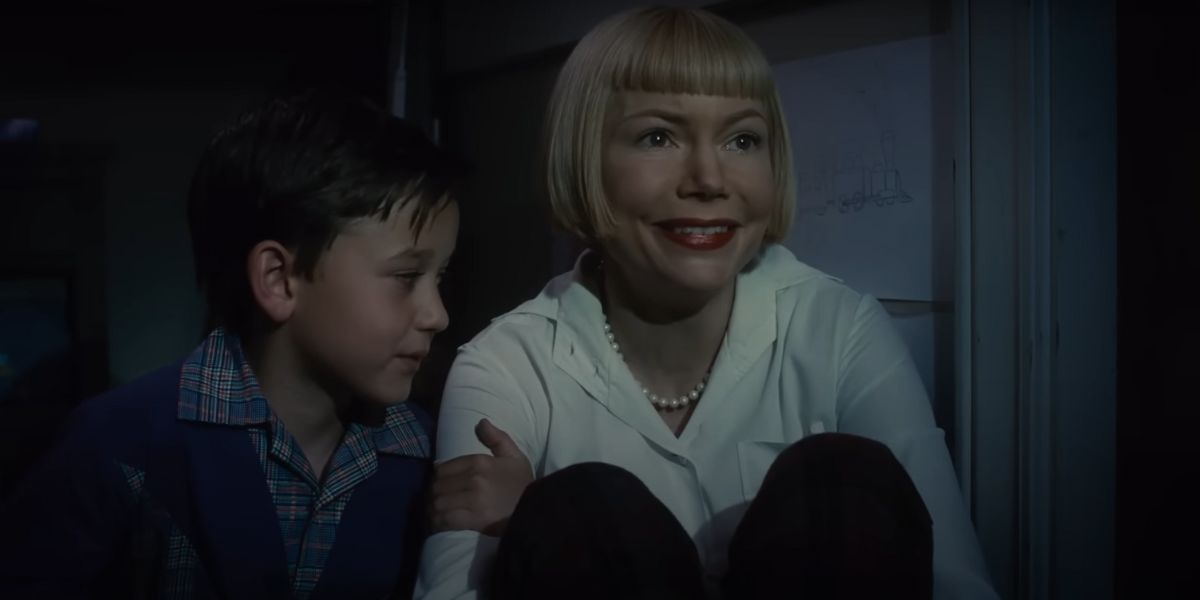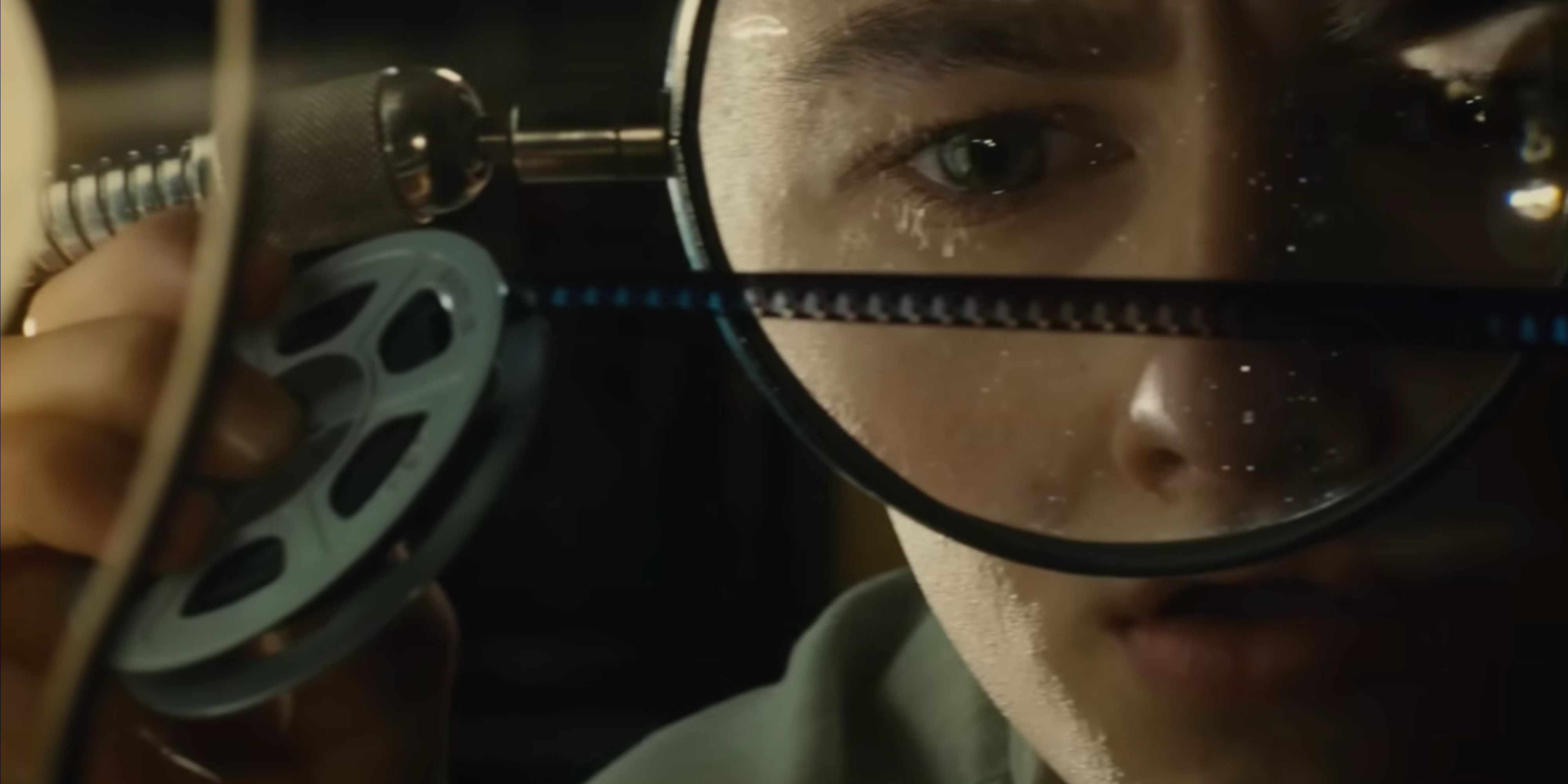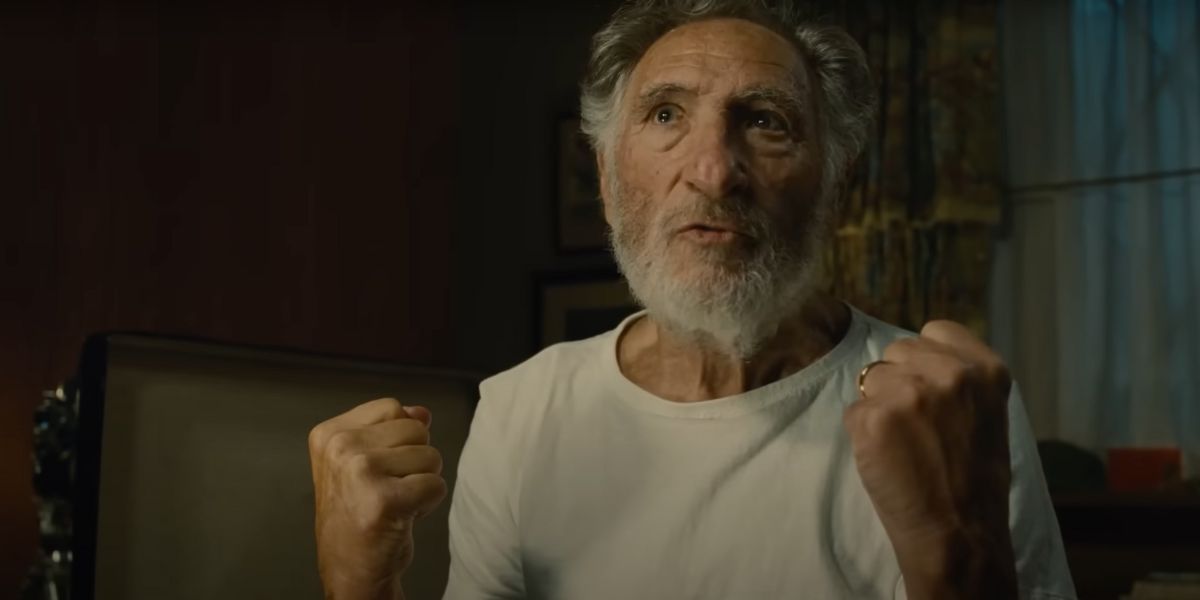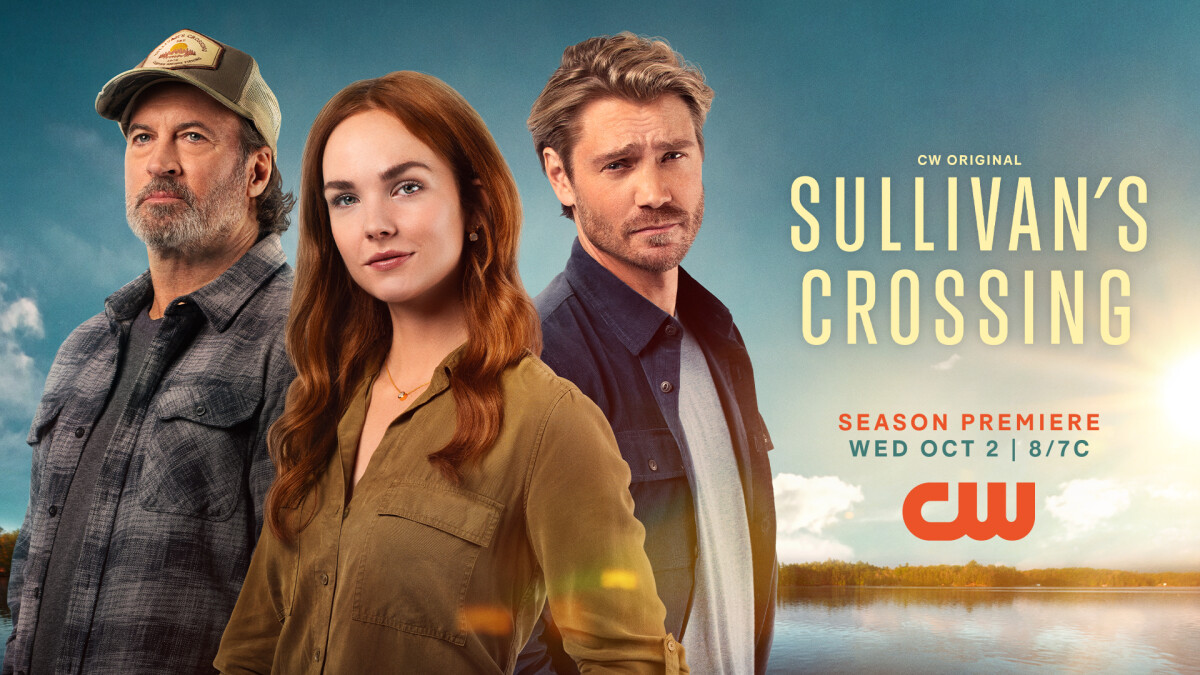Editor’s Note: The following contains spoilers for The Fabelmans.
Throughout his illustrious career in filmmaking, which has now reached its sixth decade, Steven Spielberg has been labeled as the ultimate optimist by critics and general filmgoers. In certain cases, his sentimentality has been viewed as detrimental to the quality of his films. He has developed a child-like wonder to the art of filmmaking even through his older years while taking on more “adult” films. His affinity for the happy ending rarely dissipates, no matter how many times he is told to grow up.
When the public first heard the news that Spielberg was directing an autobiographical film about his coming-of-age and aspirations of filmmaking, a collective groan was shared among the people who have had enough of his saccharine storytelling. The film’s trailer certainly did no favors to rebuke that notion, as it played like a parody of a schmaltzy Spielberg movie. But when all was said and done, The Fabelmans, which was also co-written by Spielberg and his longtime collaborator Tony Kushner, turned out to be another remarkable film from the 75-year-old director, first and foremost. The magic behind this recent release about Sammy Fabelman’s (Gabriel LaBelle) dream to become a filmmaker and the power he discovers from the camera in relation to the world around him is the sincerity of the text. The Fabelmans shines a light on the untapped darkness that resides in Spielberg’s soul after nearly 50 years of filmmaking. It is the closest he has to pulling his heart out and displaying his most deep-seated insecurities on screen. The film presupposes that Spielberg adopted filmmaking for more therapeutic motives, including dealing with his relationship to his parents, peers, and own self-identity.
The film opens with Sammy as a child (Mateo Zoryan) being taken to the movie theater by his mother, Mitzi, (Michelle Williams) and father, Burt (Paul Dano). While watching a big action set piece from the 1952 Best Picture winning The Greatest Show on Earth involving a train crash, Sammy is immensely captivated by it, not so much with wonder but hypnosis. That moment on screen is so etched into his psyche that he spends the following days vowing to recreate the crash with toy train cars at home. Later on, his mother gifts with him with his father’s 8mm camera to capture the homemade crash, which plays quite spiritually, as if Sammy was handed a gift from God. This perfectly sets the tone for the rest of the film. Viewers are immediately assured that this will not be the traditional coming-of-age tale. Seeing a young Sammy appearing to be haunted by what he saw on screen and his compulsion to capture the exact moment in his head signals a feeling slightly off-kilter about real-life Sammy’s, that being Spielberg’s, kinship to cinema.
Spielberg and his Relationship to his Parents
A major theme throughout Spielberg’s filmography is his tumultuous relationship to his parents. As a child of divorce, he grapples with his lack of proper fatherhood growing up. This is seen with the father who abandons home life to seek out greater adventure in Close Encounters of the Third Kind and the boy in need of a replacement companion in the form of an alien in E.T. The Extra-Terrestrial. Viewers can assert that Spielberg champions his mother and others alike, as he depicts respective mothers in his films as strong-willed and vibrant figures who inspire their child to dream big.
The shocking reveal of The Fabelmans that Spielberg kept a secret for his whole life was that, in real life, his mother was the irresponsible one after all. As it plays out in the film, Mitzi was adulterous with Burt’s good friend, Bennie (Seth Rogen). Sammy inadvertently captures his mother and Bennie romantically bonding with each other on film during a family camping trip. Naturally, this disturbs Sammy, and permanently affects his bond with her for the rest of the film. He goes as far as to project his film reel of her and Bennie for his mother to see. The audience is not meant to believe that he vows to emotionally damage his mother, but rather, he shows the film as a cleanse for the haunting images inside of him. When he shows the final result of the camping trip film to his family (without the footage of Mitzi and Bennie), who give him thunderous praise for his work, Sammy is left emotionally vacant. The fact that he does not give up his filmmaking aspirations suggests that he has no choice but to vent these demons in his head. The film refuses to fall for the trap of the depiction of the artist as the “tortured genius.” Instead, it works as a genuine expression of sadness embedded with something Sammy is expertly skilled at, even at a young age.
This moment, perhaps the most emotionally punishing of the entire film, is framed with the idea that his camera, which has powers beyond anything that Sammy can control, created this familial turmoil. The cruel irony of it all is that Mitzi was the one encouraging her son to pursue the art of film, despite the cold enthusiasm he received from his father, often referring to it merely as a “hobby.” If this is truly the origin story of Steven Spielberg evolving into what he eventually became — a two-time Academy Award winner for Best Director and architect of countless blockbusters — then this revealed secret is a shocking revelation to the psyche of Spielberg. His stapled happy endings, from unlikely films about war and the dystopia such as Saving Private Ryan and Minority Report, which have always been perceived as shameless cop-outs from a child-like figure still needing to grow up, can now be interpreted as a disturbed soul desperately searching for the beauty in storytelling.
Spielberg’s Coming of Age
The second vital moment of the film comes when Sammy is tasked to direct a film for his high school’s senior class documenting their senior skip day at the beach. Throughout his time at this school, having now moved to northern California, Sammy is bullied and treated as an outsider due to his Jewish faith. His relationship with his high school girlfriend (Chloe East) is formed not out of true romance, but from a deemed perverseness of a conservative Catholic girl going out with a Jewish boy. Yet, instead of using his art form as a means for revenge, his film is fairly nonjudgmental, even complimentary of the main bully, Logan (Sam Rechner), at times. The film is shown at prom and the crowd reacts very favorably. Sammy appears to be neutral. When Logan confronts Sammy as to his motivations behind the film, he is lacking a proper answer.
For a figure associated with wholehearted popcorn cinema, this scene in the school hallway is a jarring and ambiguous self-analyzation of Spielberg’s purpose as an artist. Nothing is solved and nothing seems to have been learned, but Sammy continues to thrive as an expert filmmaker, which should also be noted. Spielberg has the confidence to imagine himself as a great director at the dawn of his amateur days. The fact that his home movies are executed in such a professional manner makes his persona even more mysterious. He can no longer be thought of as a wide-eyed sentimentalist in wake of this film after he depicts his younger self as a born prodigy who is incapable of accessing his feelings behind his own work.
Spielberg’s Ultimatum Between Family or Film
The scene that best serves as the film’s thesis and special ingredient that makes The Fabelmans the best film of 2022 is when Sammy and his estranged uncle, Boris (Judd Hirsch), talk in Sammy’s room during Thanksgiving. Boris used to work in Hollywood, and he paints a hopeful picture to Sammy that it is indeed where dreams are made, but simultaneously warns him of the perils of going into the field of creative arts.
Boris, the brother of Mitzi, warns Sammy that art and family stability cannot coexist; one will always compromise the other. In the following scene in his editing room, Sammy first discovers that his mother is unfaithful to his father. This speech plays like a shocking twist in a movie framed as an aspirational tale. A deep psychological reading of the text of The Fabelmans would label Steven Spielberg as a sad clown. A filmmaker who is responsible for beloved classics like Jaws and the Indiana Jones movies that continue to bring joy and happiness to audiences for years to come, yet his upbringing into making films was sacrificing a stable relationship with his family.
Based on the logic that Boris presents, it was only inevitable that he would learn of his mother’s wrongdoings if he chose to pursue filmmaking. The film by no means is an official statement of regret on the part of Spielberg becoming a director, but the film’s inherent melancholy is a product of his own exploration of the true meanings behind his passion for film. From the actual text of the film itself to Spielberg’s direction of his life story, The Fabelmans demonstrated to all filmgoers that the unbridled optimism of the director was only a cover for the true darkness that resides in his soul.




























































